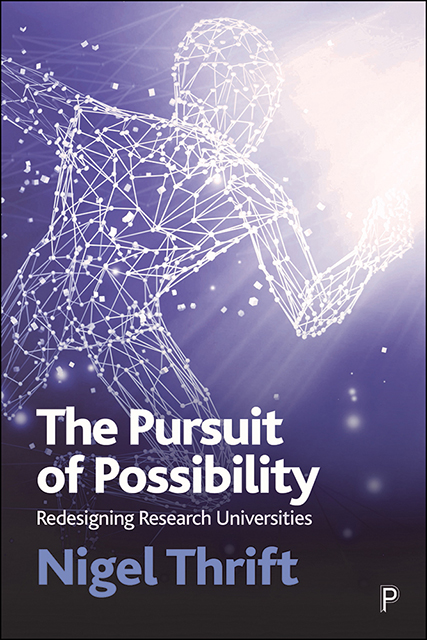6 - The Australianisation of British Higher Education
Published online by Cambridge University Press: 21 June 2023
Summary
So what are the proximate causes of all this dissatisfaction? I have lived through a time when universities were still given quite a lot of freedom. There were reasons for this but most particularly they didn’t matter as much as they do now to government and business. Universities were still quite small and, by and large, they taught and were a part of the ‘establishment’, a social complex who knew that ‘people like us’ were likely to do the right thing for people like us. Then, no one really thought that universities were a major economic sector in their own right or that they might be a key determinant of a country’s economic success. Again, universities educated only a relatively small number of people and touched the lives of many people hardly at all. Universities tended to fly beneath the radar a lot of the time, quietly confident that they were doing the right thing with the right stuff. That doesn’t mean that there was no politicking about how they were funded or what they should be doing. Government reviews kept coming. Haggling over funding was sometimes as fierce as now. But it still seemed like the state would act as a shelter in the storm if needs be.
Then came Margaret Thatcher. With her, shall we say, robust views, universities needed to measure up like any other institution. The storm was the shelter. Universities budgets were cut, sometimes drastically. Between 1981 and 1983, for example, university budgets were cut by 15 per cent, and there were further cuts in subsequent years. Some universities fared far worse with, famously, Salford (44 per cent), Aston (31 per cent) and Stirling (27 per cent) being singled out for particularly rough treatment.
By the end of the 1980s, the unit of resource, the sum that universities got from government for each student, had reduced significantly. Universities were on their uppers. There was widespread demoralisation:
The position of the academics in relation to state funding, salary levels, research facilities, staff-student ratios, public respect and indeed every dimension of professional status, had deteriorated by the end of the 1980s to the point where both domestic and foreign observers regarded the British higher education system as in crisis. (Halsey, 1995, p. 2)
- Type
- Chapter
- Information
- The Pursuit of PossibilityRedesigning Research Universities, pp. 165 - 193Publisher: Bristol University PressPrint publication year: 2022



